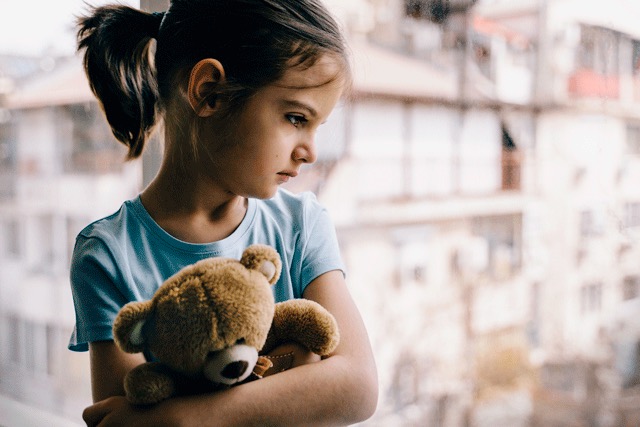The global COVID-19 pandemic has disrupted school, work, routines, schedules, and friendships. As difficult as this time is for adults, children are also struggling to process these changes while missing their friends. We will share strategies for supporting children’s emotional well-being during this time.
Reflect and Connect With Your Feelings
You may feel pressure to be “on” all the time because physical boundaries such as school and work no longer look the same. When everyone is always together, it can be difficult to find time to take care of yourself because it feels as if there is always something more important to do.
Make time for yourself every day, even if it’s for only 10 minutes. Spend this time reading a book, starting a gratitude journal, going on a walk, taking a relaxing bath, calling a friend—whatever brings you joy! When you care for your emotional needs, you are better able to make space to support your children’s emotional needs. Here are four strategies you can use to support children who miss their friends:
1. Talk About Feelings
Normalize talking with your child about how you are feeling and how they are feeling. When you feel sad about working from home, say “I miss my friends in the office and feel lonely.” Labeling the emotion can help to identify healthy ways to process the big feelings that arise when your routines change. Talk about all feelings—happy, sad, angry, frustrated, excited—without adding a positive or negative value to them. When your children share their feelings with you, be sure to validate those feelings and thank them for sharing. For example, you could say “I am really frustrated by all the things this pandemic is taking away too. Thank you for being brave and telling me you are feeling upset.”
2. Model Healthy Coping
After you have begun talking about how you are feeling when you miss your friends, create a list of activities to do when those feelings arise. Consider the things that bring you joy and comfort when you feel down, frustrated, or angry. (These are just some of the emotions that may arise when you miss being with your friends.) Activities might include journaling, talking to a friend, cooking, creating music, or spending time outside with a hike or neighborhood walk.
Then, sit down with your child and make a list of activities you each can do when you are missing your friends. You child’s list could include looking at a book, listening to music, talking to a loved one, drawing a picture, or taking belly breaths.
Encourage your child to come up with three to five activities they can do when big feelings arise. Once you have each made a list, post the lists in a high-traffic area of your home. Normalizing talking about missing friends, the big feelings that come when you miss your friends, and ways to work through them will create a safe environment for your child to share their feelings (or other challenges they are experiencing).
3. Mindfulness
Practicing mindfulness daily will help you and your child develop emotional regulation so you have those skills when you need them. This can be especially helpful as a regular part of your day but can also be used when your child is missing their friends and feeling big emotions. If mindfulness is new to your family, start with just two to five minutes of focusing on your breath; count to four slowly as you breathe in and count to four slowly as you breathe out.
Encourage your child to put their hand on their belly to feel as it rises and falls with their breath. Mindful breathing brings your consciousness to the present moment and reduces feelings of stress and anxiety. Once calm, you can talk with your child about how they are feeling and identify ways to connect with friends safely. Like any new habit, finding time to practice this with your child often will help you both fit it into your daily schedule and use it when needed.
4. Connect Safely
Finally, find some ways for your child to connect with their friends virtually or from a safe distance. Get creative with your ideas—video calls with games, watch parties, sending mail with pictures, book exchanges, and outside playdates with masks and social distancing.
Talking about big feelings, such as the emotions associated with missing friends, can be uncomfortable at first. Remember, there is no right way to deal with big emotions. Be gentle with yourself and remember you are setting a example for your child. Respond to how you are feeling each day. Self-care is dynamic; some days you will need more time or a different type of self-care. Children often learn best by watching others. When you model healthy ways to deal with your feelings, your child will follow your lead.

Brandy Locchetta
Brandy Locchetta is a doctoral student in early childhood special education and applied behavior analysis at Vanderbilt University. She has worked in early childhood since 2001 serving as an educator, childcare program administrator, advocate, consultant, and most recently as a state-level program director of inclusion and behavior support services.
Biography current as of 2021

Marina Velez
Marina Velez is a doctoral student in early childhood special education at Vanderbilt University. She has worked as an early childhood special education teacher and conducts research to support social and emotional development in young learners.
Biography current as of 2021


